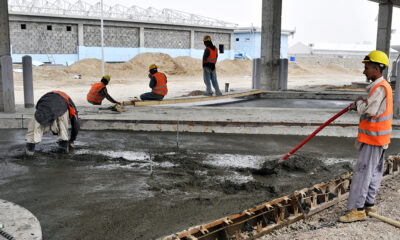Latest News
Beware Taliban promises, Afghanistan envoy to China warns
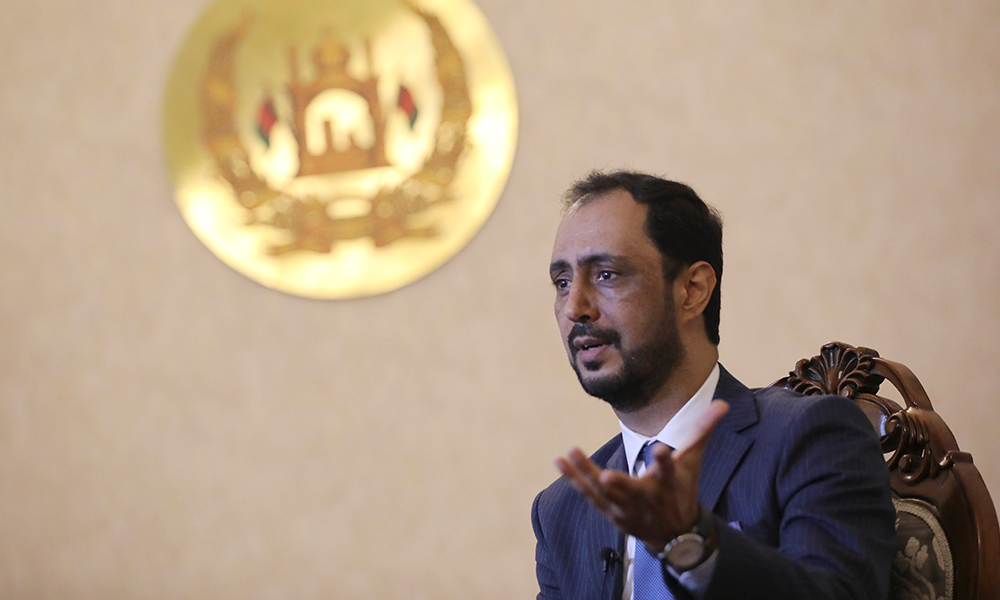
The Taliban cannot be trusted to keep their promise to China not to harbour Islamist militants seeking separatism in its Xinjiang region, Afghanistan‘s ambassador to China told Reuters, a week after China hosted Taliban officials.
The withdrawal of U.S. forces from Afghanistan, and a surge in fighting as Taliban insurgents gain territory, raise concerns for China, which worries that more instability in the region will disrupt its Belt and Road plan for infrastructure and energy links to the west and embolden separatists to destabilise its far western Xinjiang region.
Last week Foreign Minister Wang Yi hosted a Taliban delegation in the northern city of Tianjin, days after meeting U.S. Deputy Secretary of State Wendy Sherman in the same location.
The Taliban pledged not to interfere in China’s internal affairs or allow Afghan territory to be used by anti-China forces.
But Afghan ambassador to China, Javid Ahmad Qaem, was dismissive of Taliban promises.
“I don’t think even China believes in that,” Qaem told Reuters in an interview, adding that the Taliban were “only saying this to get regional support”.
Instead of backing one Afghan side against another, as the United States and the Soviet Union have done in the past, China has adopted an “Afghan-led, Afghan-owned” approach, in line with its principle of non-intervention.
“The Chinese position is they want to mediate,” Qaem said in the Thursday interview at his embassy, adding that the U.S.-backed Afghan government welcomed China’s involvement and he understood why it wanted to stick to the middle ground.
The United Nations said in a report last month that the East Turkestan Islamic Movement (ETIM), a militant group affiliated with al Qaeda that China says wants to set up a separate state in Xinjiang, is active in Afghanistan in areas including the northeastern province of Badakshan, where China and Afghanistan share a remote 76 km border.
Qaem, 41, who has been in his post since November 2019, scoffed at the suggestion the Taliban might turn against their fellow militants from Xinjiang.
“It’s the same ideology. How could you expect somebody with the same thinking to fight other people who are with the same thinking?” he said.
China has maintained friendly relations with the Afghan government but also has also hedged its bets, analysts say, with its ties with the Taliban. Last month’s visit by a Taliban delegation followed a similar one in 2019.
In receiving the Taliban officials in their traditional tunics and turbans, Wang called them a “significant military and political force” expected to play a key role in Afghanistan‘s reconstruction.
“As the Taliban gain inroads, China wants to maintain contact and ensure that it is not in the Talibans’ bad books, just in case they come to power,” said Yang Chaohui, a lecturer at the School of International Studies at Peking University.
“China would normally be wary of any grouping that operates on the basis of religious extremism, but it has no intention of fighting the Taliban, because it knows it has no chance of succeeding in what the United States and Soviet Union have both failed to do,” Yang said.
Qaem said he would prefer that China was fully behind the government but also said that Beijing was transparent about its engagement with the Taliban, informing the government before extending its invitation and briefing it afterwards.
“We have faith in the Chinese intentions,” he said.
Qaem said the Afghan government had not asked China to send troops to support it but it could help in other ways.
China could encourage Pakistan – which has long seen the Taliban as the best option for limiting the influence of old rival India in Afghanistan – to build trust with the Afghan government, Qaem said.
China could also serve as a conduit for messages from Kabul to the Taliban, as it was at last week’s meeting – relaying a government call for a ceasefire and an appeal for an inclusive political framework, he said.
China can also help in boosting trade and buying more Afghan products such as saffron, he said.
“So as long as that is provided, I don’t think China needs to send boots,” he said.
Latest News
Moscow’s move a ‘significant step toward recognizing Afghanistan’s political realities’, says Haqqani
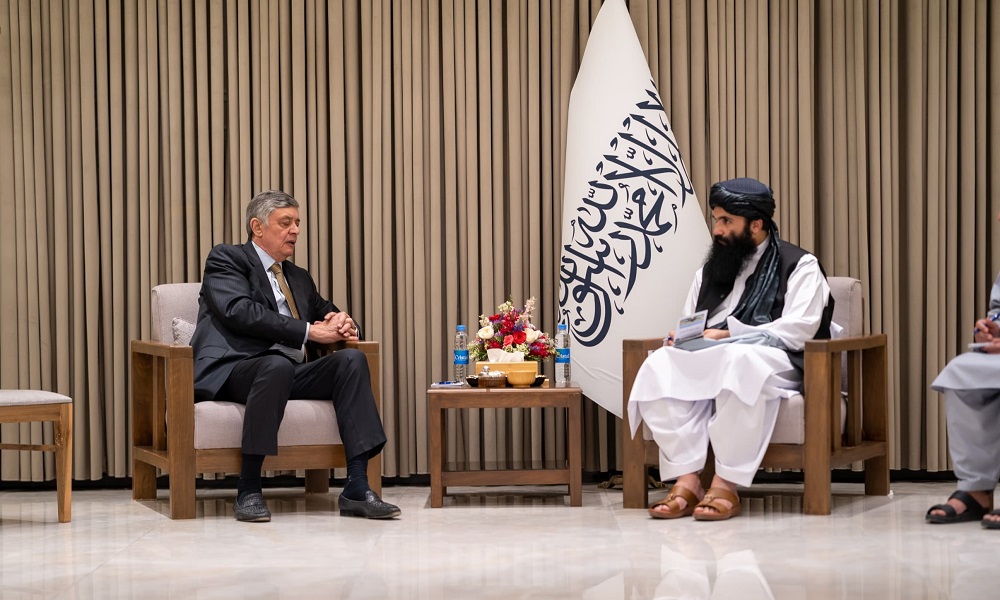
Acting Minister of Interior Sirajuddin Haqqani on Wednesday met with Zamir Kabulov, Russia’s special envoy for Afghanistan, and Dmitry Zhirnov, Russia’s ambassador to Kabul.
Haqqani expressed appreciation for Moscow’s recent decision to remove the Islamic Emirate from its list of terrorist organizations. He described the move as “a significant step toward recognizing the political realities of Afghanistan.”
In a statement, the interior ministry said that both sides emphasized the importance of upgrading diplomatic relations to the level of embassies and reaffirmed their commitment to mutual cooperation in the fields of security and trade.
During the meeting, the two parties also discussed regional and bilateral cooperation in the areas of security, economy, and commerce, and stressed the need to strengthen ties between the two countries.
Latest News
Special meeting will be held to launch Afghanistan–Russia joint commission, says Kabulov
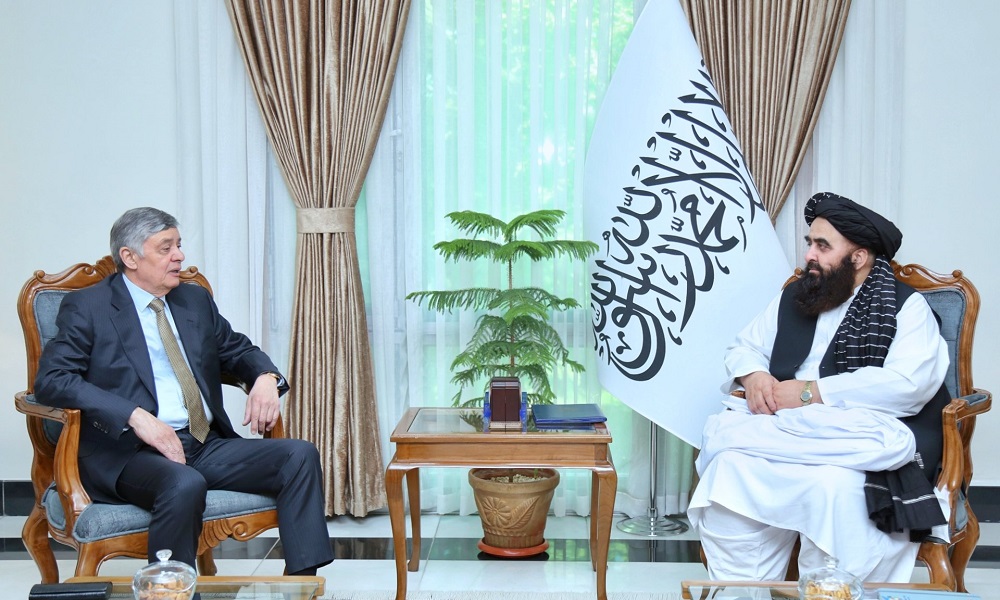
Zamir Kabulov, Russia’s special envoy for Afghanistan, on Wednesday met with Afghanistan’s Acting Minister of Foreign Affairs Amir Khan Muttaqi in Kabul and said a special meeting will be held on the sidelines of the Kazan Forum to officially launch the permanent joint commission between Russia and Afghanistan.
According to a statement issued by the Afghan foreign ministry, Kabulov said that expanding relations with Afghanistan is important to Russia, and for that purpose, Moscow has taken steps to remove obstacles in the path of developing bilateral ties.
This comes after Moscow last week removed the Islamic Emirate from their list of militant organizations.
During the meeting, Muttaqi expressed appreciation for Russia’s recent move to remove the IEA from its list of banned organizations and stated that the Islamic Emirate will soon appoint a diplomat at the ambassadorial level to serve in Moscow.
The two sides also discussed enhancing bilateral relations between Afghanistan and Russia, expanding economic and trade cooperation, and addressing certain regional issues.
The 16th International Economic Forum “Russia – Islamic World: Kazan Forum” will be held from May 13 to 18 in the city of Kazan, Russia. Afghan products and goods will be showcased at the event.
Latest News
Balochistan business chamber asks Islamabad to issue work permits to Afghan refugees
This comes amid Pakistan’s ongoing campaign to expel hundreds of thousands of Afghan refugees living in the country.
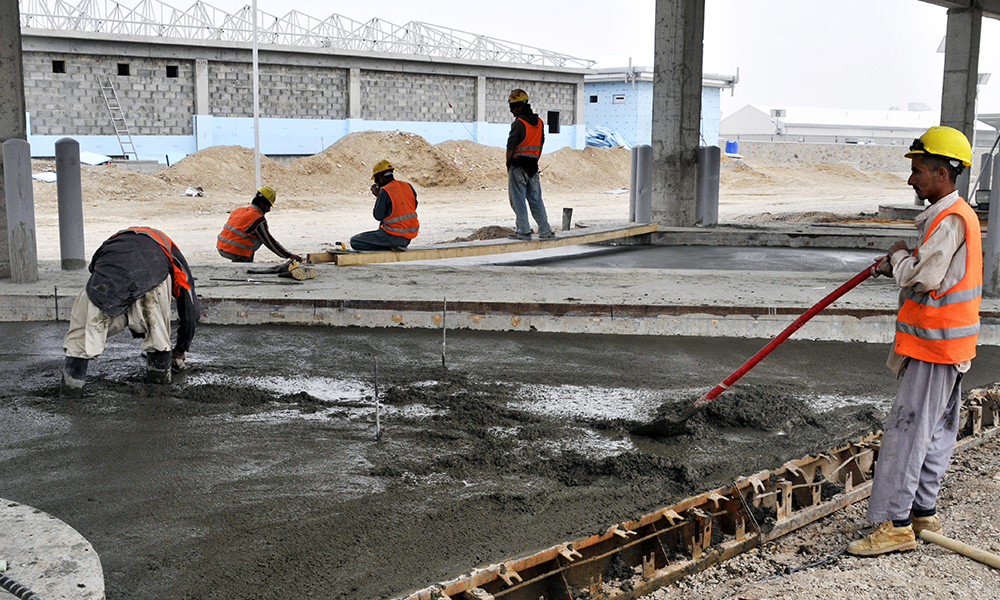
The Balochistan Chamber of Commerce and Industry in Quetta, Pakistan, has appealed to the federal government to issue work permits to skilled Afghan refugees who work in various sectors including mining and agriculture.
Haji Akhtar Kakar, the vice president of the chamber of commerce and industry, made the request while pointing out that the existing shortage of skilled labour could worsen further if the issue was not addressed promptly, Dawn news reported.
This comes amid Pakistan’s ongoing campaign to expel hundreds of thousands of Afghan refugees living in the country.
Akhtar said however that due to Balochistan’s deteriorating security situation, mine owners, farmers and industrialists have had to rely on Afghans for skilled labor as Pakistani workers from other provinces were reluctant to move to Balochistan.
According to him, the decision to expel Afghan refugees had severely impacted the agriculture, mining, and industrial sectors in Balochistan, as a significant portion of the workforce came from Afghanistan.
-
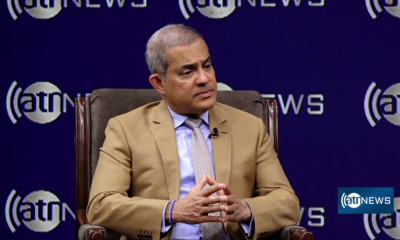
 Latest News5 days ago
Latest News5 days agoEngagement and diplomacy key to solving Afghanistan’s challenges, says Ratwatte
-

 Sport4 days ago
Sport4 days agoAfghanistan qualify for U19 Cricket World Cup 2026
-

 Regional5 days ago
Regional5 days agoDeadliest US strike in Yemen kills 74 at oil terminal, Houthis say
-

 World4 days ago
World4 days agoThousands of protesters rally against Trump across US
-

 World4 days ago
World4 days agoIran, US end nuclear talks in Rome, agree to meet next week
-

 Latest News3 days ago
Latest News3 days agoPolio vaccination campaign launched in Afghanistan
-

 International Sports3 days ago
International Sports3 days agoIPL 2025: 14-year-old Vaibhav Suryavanshi becomes youngest IPL player
-

 Latest News2 days ago
Latest News2 days agoChina invites various Afghan delegations to attend Shanghai forums










